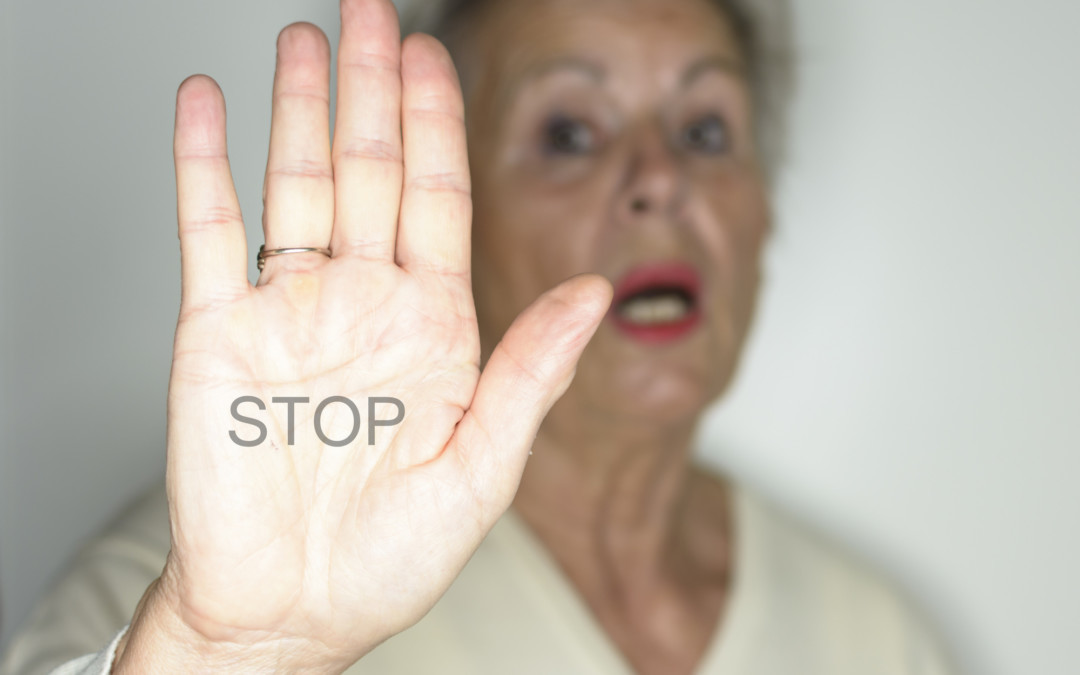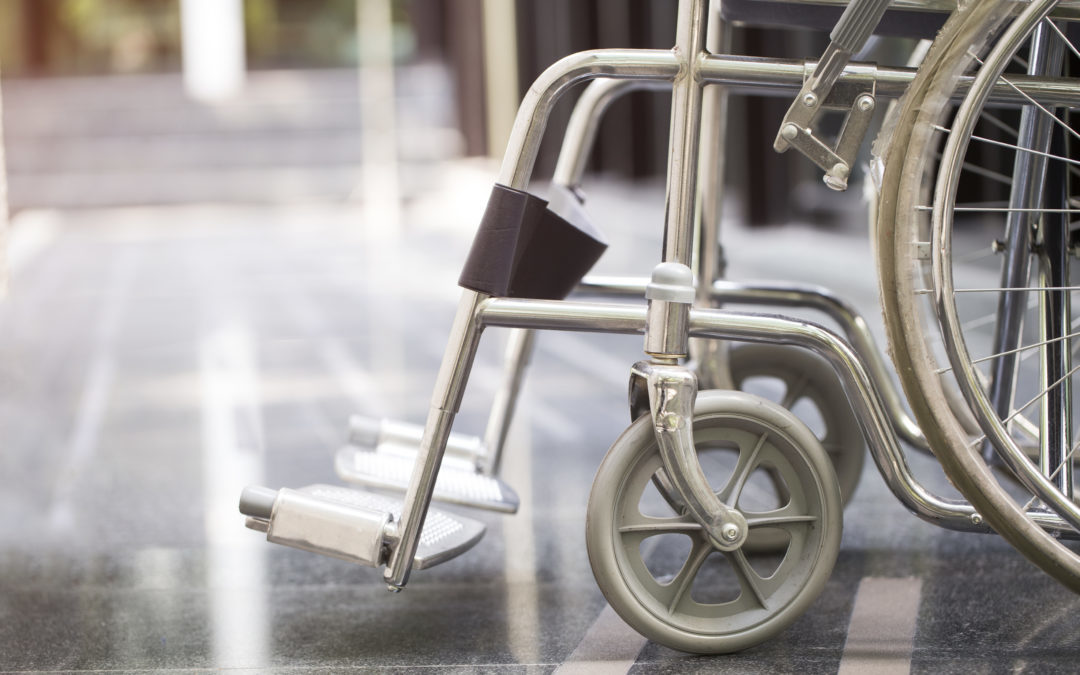Elder Abuse at a Nursing Home? How To Report It and STOP It.

Elder Abuse at a Nursing Home? What you need to know.
An estimated 12 million Americans require long term-term care. By 2050, the number of people paying for long-term care could be as high as 27 million.
As the number of elderly people grows, so too does the number of elderly people who are abused while in the care of a nursing home. Although many cases of elder abuse go unreported, it's estimated that 1 in 10 experience some form of abuse.
Several have been enacted to combat elder abuse. But the first and most important step to fighting for our growing population of elderly people is to report the abuse. Unfortunately, many professionals and individuals don't know how to report elder abuse.
In this guide, we explain what elder abuse is, how to detect the signs and how to report mistreatment. Keep reading to find out how to report elder abuse... it could help you save a life one day.
Who Can Commit Elder Abuse
Any person that cares for, or is involved in the care of, an elderly person, can potentially abuse that person.
When elderly people can no longer take care of themselves, they often rely on the care of several individuals. This includes family, nurses, doctors, at-home caregivers, long-term care professionals, and employees of long-term care facilities.
What is Elder Abuse
Elder abuse comes in many forms but always has the same consequences. Elderly abuse results in harm or loss to the person being abused.
Domestic violence, exploitation of finances, neglect, physical abuse, psychological abuse, and sexual abuse are some of the common forms of elderly abuse.
These forms of abuse often go unreported. The person being abused may not see loved ones that they trust with this information or loved ones may not know what to do about the abuse. Sometimes, the person being abused fears retaliation for reporting the mistreatment or they are unable to verbalize the abuse due to a loss of cognitive or physical function.
Abuse can also be hard to recognize and may go unnoticed. It's critical that loved ones, as well as anybody involved in elderly care, knows how to recognize the signs of abuse.
Forms of Elder Abuse
Below are the common forms of elder abuse and the signs to look for:
- Sexual abuse. This involves unsolicited touching, fondling, intercourse or any other sexual activity. If the elderly person is unable to consent, has been threatened or physically forced to participate in sexual activity, it's a form of sexual abuse. Physical marks may be an indication of sexual abuse.
- Emotional abuse. This includes verbal assault, threats, harassment as well as intimidation. This form of abuse is difficult to detect but it could cause fear of a caregiver, disconnection from loved ones or acting-out in unusual ways.
- Physical abuse. Often resulting in injury, the signs can be anything from scratches and cuts to broken bones.
- Confinement: When an elderly person is retrained or isolated for reasons other than medical reasons, this is a form of abuse.
- Willful deprivation: An abuser may deny medication, care, shelter, food or other necessary physical assistance. This can result in physical, mental and emotional harm.
- Financial exploitation: This effects an elderly person's ability to care for themselves. Signs include checks that are unaccounted for, inability to make payments, missing credit cards or property and insufficient bank account funds.
- Neglect. This encompasses anything from not washing clothing to not providing necessary care. Common signs of neglect include unsanitary living conditions, bedsores, dehydration, malnutrition or unexplained medical conditions.
Duty to Report
The Elder Justice Act of 2009 was enacted to combat elder abuse, exploitation, and neglect across the US. Mistreatment of elderly people is endemic and this bill provides people with the resources they need to stop the mistreatment of older adults.
As an individual, if you suspect elder abuse you have a moral obligation to report it. This includes family members, neighbors, friends, at-home caregivers, medical professionals and employees of long-term care facilities.
In some instances, you may also have a legal obligation to report suspected abuse. Some states have mandatory reporting requirements for doctors, social workers, nurses and other healthcare professionals. If you suspect or know of abuse and don't report it, you may be held liable under both civil and criminal law.
Confidentiality
Your name may remain confidential when reporting depending on how severe the abuse is, how you report it and where you reported it. In some cases, your name and participation will be required to move forward with an investigation.
There are many ways to report elder abuse. Some offer confidentiality and some do not.
However, you shouldn't be afraid of retaliation for reporting abuse. In most cases, you are protected from being demoted, laid off or verbal harassment after reporting elderly abuse.
How to Report Elder Abuse
If you suspect elder abuse, you should report it right away. Below we discuss the many ways you can report any suspected abuse.
Document the Signs of Abuse
Documenting suspected or known abuse will help the case of the individual involved and allow the report to go through more quickly.
- Note any changes in the behavior of the abused person involved.
- If possible, get photographic evidence of injuries and signs of abuse.
- Write down any noted injuries including scratches, cuts, bruises or broken bones.
- If they're willing, take a written statement from the victim of the abuse.
- If they're willing, take a written statement from any witnesses to the abuse.
Use The Grievance Procedure
Loved ones of elderly victims of abuse may choose to report abuse through the facility in which their loved one lives.
Long-term care facilities that accept Medicare or Medicaid are required to have a grievance procedure in place. You can find out about this procedure through the facility or in an information package provided when your loved one moved in.
You can make a complaint over the phone or in writing. If you're calling to make a complaint, write down the details of the conversation. Otherwise, file your grievance in writing and make a copy for your own records.
A representative from the nursing home will likely contact you for additional information about potential mistreatment. They'll launch an investigation and provide you more with details as to what you can expect. Usually, within 30 days, the nursing home will provide you with a report of their findings and the actions they've taken.
Report to Adult Protective Services
Adult Protective Services is available in all 50 states. They will investigate and respond to complaints of elderly abuse on your behalf.
However, what they're able to do varies in each state. You must ask what the scope and power of the investigation is when you file a complaint. You'll be required to fill out a form to report what is going on.
With Adult Protective Services you don't have to have hard evidence of the abuse. It is good practice to have some documentation to expedite the complaint.
The report will be assigned to a caseworker and they're responsible for investigating the nursing home. You'll need the permission of the patient for the caseworker to proceed. Be sure to talk to the victim and explain to them why this is important.
Contact Your Long-Term Care Ombudsman
Every state has an ombudsman program. This program investigates and resolves complaints of mistreatment.
As advocates for resident rights and, they'll investigate any claims of elder abuse and work through a process to resolve the situation.

Contact Eldercare Locator
Eldercare locator can provide you with more information on various state laws and regulations as well as what your options are for hot to report elder abuse. Although they don't take or resolve claims of abuse, they can point you in the direction of an agency that can.
Call 911 in Serious Cases of Abuse
If a serious injury has occurred or you suspect that it is possible, then you should call 911 immediately. Police officers are able to investigate claims of abuse to a degree and they can also point you in the direction of help.
What to Do After Reporting
After you've reported the situation, there are a few steps you can take.
Hire an Attorney
First, you should look into hiring an attorney. An attorney who handles elder abuse cases can advise you on what damages you are entitled to and what steps to take next.
If the elderly person involved was injured as a result of abuse, it is possible that you can file a personal injury lawsuit against the nursing home. Personal injury can be the result of anything from physical abuse to negligence.
If the victim's medications or medical treatment suffered as a result of the abuse, you may also be able to file a lawsuit for medical malpractice.
Contact the Doctor or the Person in Charge of the Nursing Home
The nursing home may not be aware of the abuse that's going on. It's critical to contact them so they're aware of a potential abuser and can take appropriate action. This could stop the abuser from hurting anybody else in the future.
Remove the Victim from the Nursing Home
In most cases, it's best to remove the elderly person who was abused to a new nursing home in order to protect their wellbeing.
Are You Aware of Elderly Abuse?
If you suspect a case of elderly abuse, you have a moral obligation to report that abuse. If you're a medical professional, you may even have a legal obligation.
Shouldn't YOU Have The Best Liked Lawyer, Too?
"Hiring Scott was one of the best moves I have made in my life....5 star first class act who really knows his stuff."

Call Now.
If you're not sure how to report elder abuse, follow the steps outlined above. Then, contact us to find out what legal steps can be taken to correct the situation.


